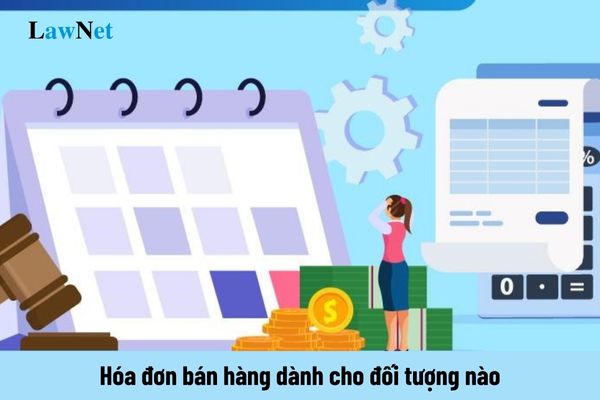Which organizations and individuals may use sales invoices in Vietnam?
Which organizations and individuals may use sales invoices in Vietnam?
Pursuant to Clause 2, Article 8 of Decree 123/2020/ND-CP, specific regulations on the types of invoices are as follows:
Sales invoices are intended for the following organizations and individuals:
[1] Organizations and individuals calculating value-added tax by the direct method for activities such as:
- Selling goods and providing services within the country;
- Engaging in international transportation activities;
- Exports to special zones and cases considered as exports;
- Exporting goods and providing services abroad.
[2] Organizations and individuals in special zones when selling goods, providing services domestically, and when selling goods, providing services among organizations and individuals in the special zones with each other, exporting goods, providing services abroad, must clearly state on the invoice "Intended for organizations and individuals in special zones."

Which organizations and individuals may use sales invoices in Vietnam? (Image From Internet)
When is the invoicing time for a sales invoice in Vietnam?
According to Clause 1, Article 9 of Decree 123/2020/ND-CP, the specific regulations on the invoicing time for a sales invoice are as follows:
Time of Issuing Invoices
- The invoicing time for an invoice for selling goods (including the sale of state assets, confiscated goods, inventory of national reserves) is when the ownership or use right of the goods is transferred to the purchaser, regardless of whether payment has been received or not.
- The invoicing time for an invoice for providing a service is when the service is completed, regardless of whether payment has been received or not. In cases where the service provider collects money before or during service provision, the invoice issue time is when payment is collected (excluding cases of deposit or advance collection to ensure contract fulfillment for services: accounting, auditing, financial consultancy, tax appraisal; price evaluation; technical survey, design; inspection consultancy; project investment preparation).
...
Thus, the invoicing time for an invoice for selling goods (including state assets, confiscated goods for public revenue, national reserve sales) is when the ownership or use right of the goods is transferred to the purchaser, regardless of whether payment has been received or not.
Is failing to issue an invoice when selling goods considered tax evasion in Vietnam?
Pursuant to Clause 3, Article 143 of Law Tax Administration 2019, specific regulations on tax evasion acts are as follows:
Tax Evasion Acts
- Not submitting taxpayer registration documents; failure to file tax returns; submitting tax returns more than 90 days after the due date or extended deadline as prescribed by this Law.
- Not recording in bookkeeping receipts related to tax determination.
3. failing to issue invoices for goods or services sales as required by law or recording on the sales invoice a lower value than the actual payment for goods or services sold.
- Using unlawful invoices, certificates; illegally using invoices to account for goods, input materials in tax obligations arising to reduce tax payable or increase tax exemptions, deductions, refunds, or non-payable tax.
- Using documents that do not accurately reflect transaction nature or actual value to incorrectly determine tax payable, tax exemption, reduction, or refund.
- Providing false statements about export, import goods without amending tax documents after customs clearance.
...
Thus, according to the above provisions, failing to issue an invoice when selling goods is an act of tax evasion.
What acts are prohibited in invoice issuance in Vietnam?
According to Article 5 of Decree 123/2020/ND-CP regulations on prohibited acts in invoice issuance are as follows:
- For tax officials:
+ Creating inconvenience and difficulties for organizations and individuals coming to buy invoices, certificates;
+ Acts of covering up, colluding with organizations, individuals to use unlawful invoices, certificates;
+ Accepting bribes when inspecting or checking invoices.
- For organizations, individuals selling, providing goods, services, and related parties:
+ Conducting fraudulent acts such as using unlawful, illegally used invoices;
+ Obstructing tax officials' public duties, specifically acts harming the health, dignity of tax officials during invoice and certificate inspections;
+ Unauthorized access, modification, destruction of invoice and certificate information systems;
+ Bribing or engaging in other acts related to invoices, certificates to gain illegal benefits.

